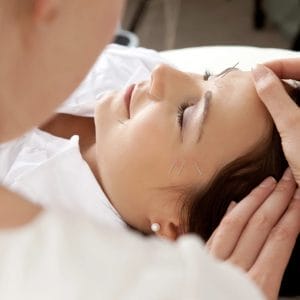Have you ever wondered about acupuncture? Maybe you see it as a covered benefit in your health insurance, or know a friend or colleague who has tried it, but you’re not sure if it is something for you to try? Today, we will explore this ancient practice of traditional Chinese medicine, which has been used for thousands of years to treat various ailments and conditions. Specifically, we’re going to dig deeper into whether it is worth trying for managing migraine and look at why it has recently been gaining popularity as an alternative and complementary therapy.
How Acupuncture Works
Acupuncture involves inserting thin needles into specific points on the body, known as acupoints. These points are believed to lie along pathways called meridians, through which vital energy, or “qi,” flows. By stimulating these points, acupuncture aims to restore balance and harmony within the body, promoting natural healing processes. While the exact science of how acupuncture works is not fully understood, many studies show it to be a safe, effective, and readily available treatment for reducing both the duration and frequency of migraine attacks. In short, acupuncture may have many benefits for alleviating migraine symptoms and improving the quality of life for those who live with this disabling disease!
It is believed that acupuncture does the following:
- Stimulates the release of endorphins, the body’s natural pain killer, which helps relieve migraine symptoms.
- Influences neurotransmitters such as serotonin and dopamine, which play a role in mood regulation and pain perception.
- Enhances blood circulation, particularly in the head and neck.
- Promotes relaxation, reduces stress, and improves sleep.
- Regulates certain hormones and fluctuations.
The Benefits of Acupuncture for People with Migraine
 A systematic review concluded that acupuncture is a valuable treatment option for preventing migraine attacks. The review analyzed data from multiple studies and found that acupuncture was associated with a significant reduction in migraine duration and frequency—both chronic and episodic.
A systematic review concluded that acupuncture is a valuable treatment option for preventing migraine attacks. The review analyzed data from multiple studies and found that acupuncture was associated with a significant reduction in migraine duration and frequency—both chronic and episodic.
In addition to the evidence for its effectiveness, acupuncture may have other benefits for migraine relief. It is:
- Safe—side effects are unlikely, but those that occur are generally mild and temporary.
- Effective for use in both the short and long term.
- Helpful for other comorbid conditions such as anxiety, depression, GI issues, sleep, nerve, and other chronic pain disorders.
- Combinable with other pharmacological and alternative migraine treatments.
- Personalized—treatments are tailored to the patient’s specific needs and symptoms.
- A good option for those who don’t respond to or can’t use traditional medication/drug therapies.
- Minimally uncomfortable—most people report feeling little pain as the needles are put into specific points.
Things to Note Before Trying Acupuncture
In short, while it is not a cure, acupuncture does seem to offer a promising solution for individuals seeking relief from migraine. Its ability to alleviate pain, reduce frequency and severity, and improve overall well-being may make it a valuable addition to your migraine treatment plan. However, before seeking treatment, be sure to speak with your doctor and keep the following in mind:
- Acupuncture may only be effective after a certain number of sessions. Initially, an acupuncturist may want to see you once weekly for at least 6-8 sessions. Generally, your acupuncturist can determine this based on the specific symptoms and issues you are experiencing.
- If your insurance covers the cost of acupuncture, remember to check for an “in-network” list of who you can see.
- If your insurance doesn’t cover the cost of acupuncture visits, some acupuncturists may offer a discount.
- While an acupuncturist may offer insights about the potential benefits of acupuncture, you should rely on your medical doctor for medical diagnoses and treatment plans. Never stop any medication without first talking to your doctor!
Interested in giving acupuncture a try?
Find a practitioner in your area here.